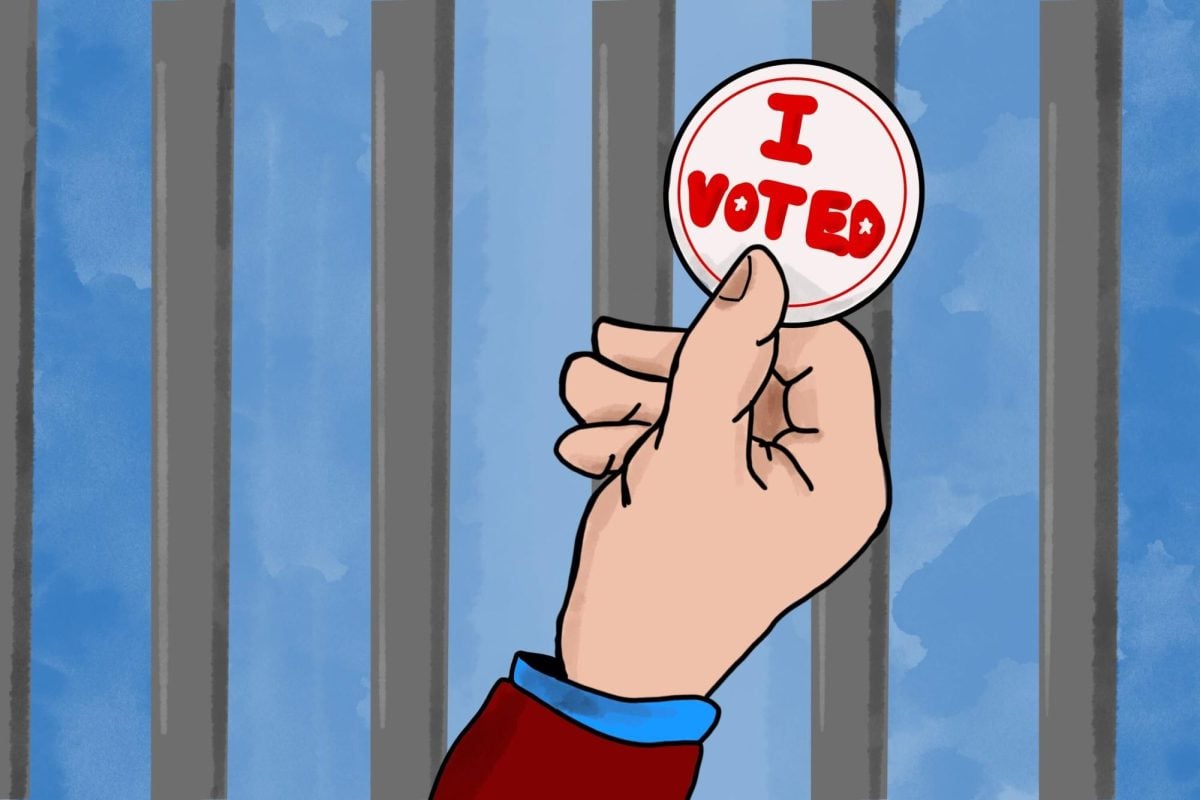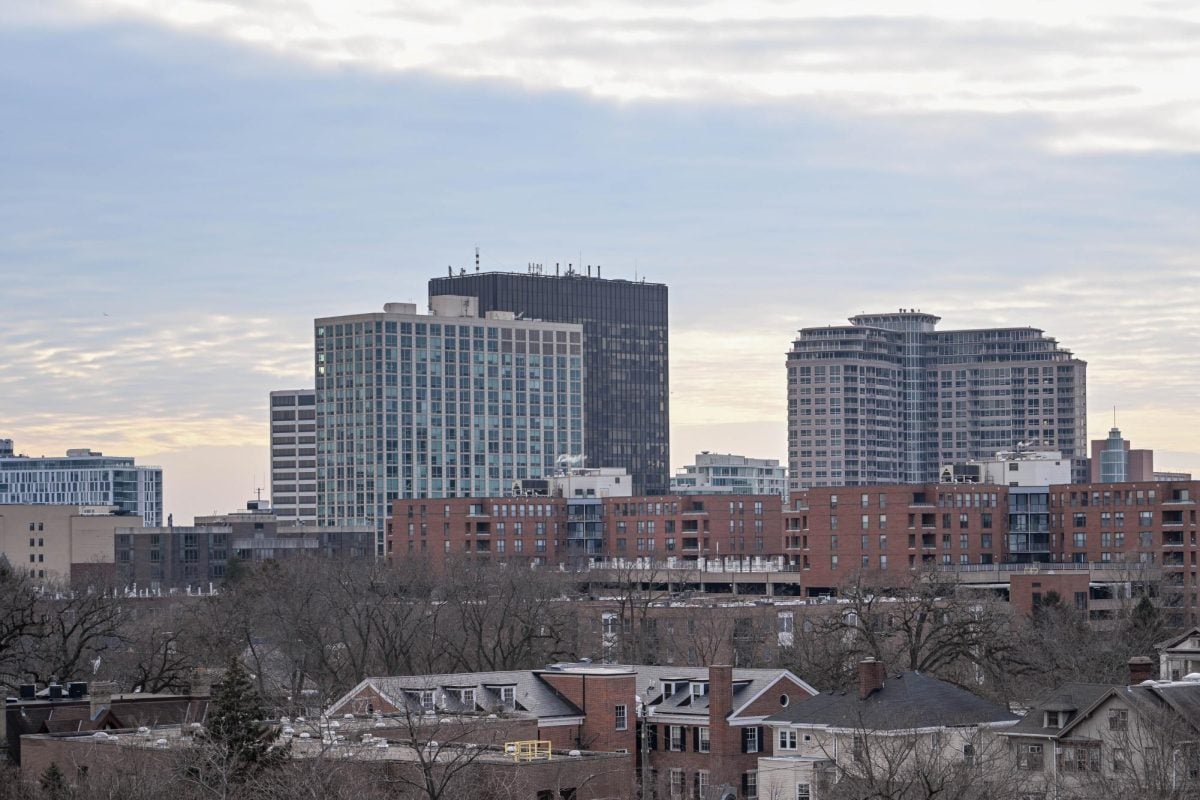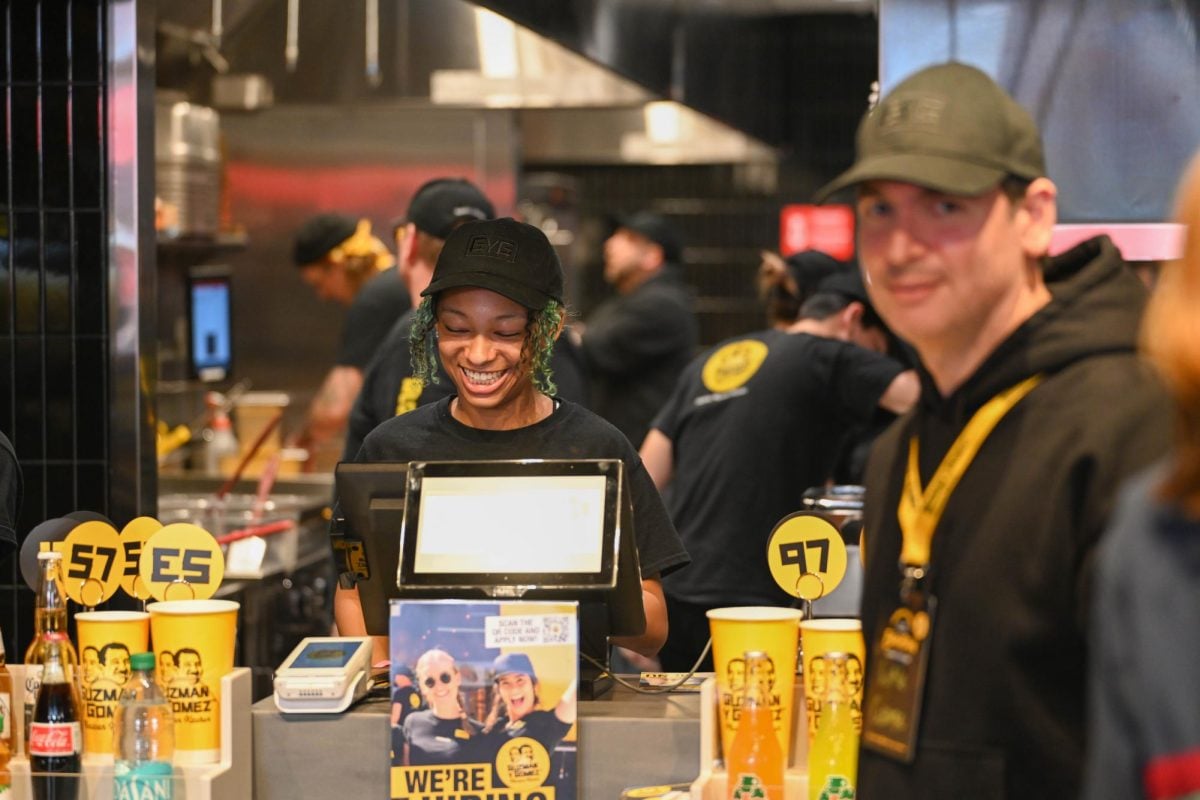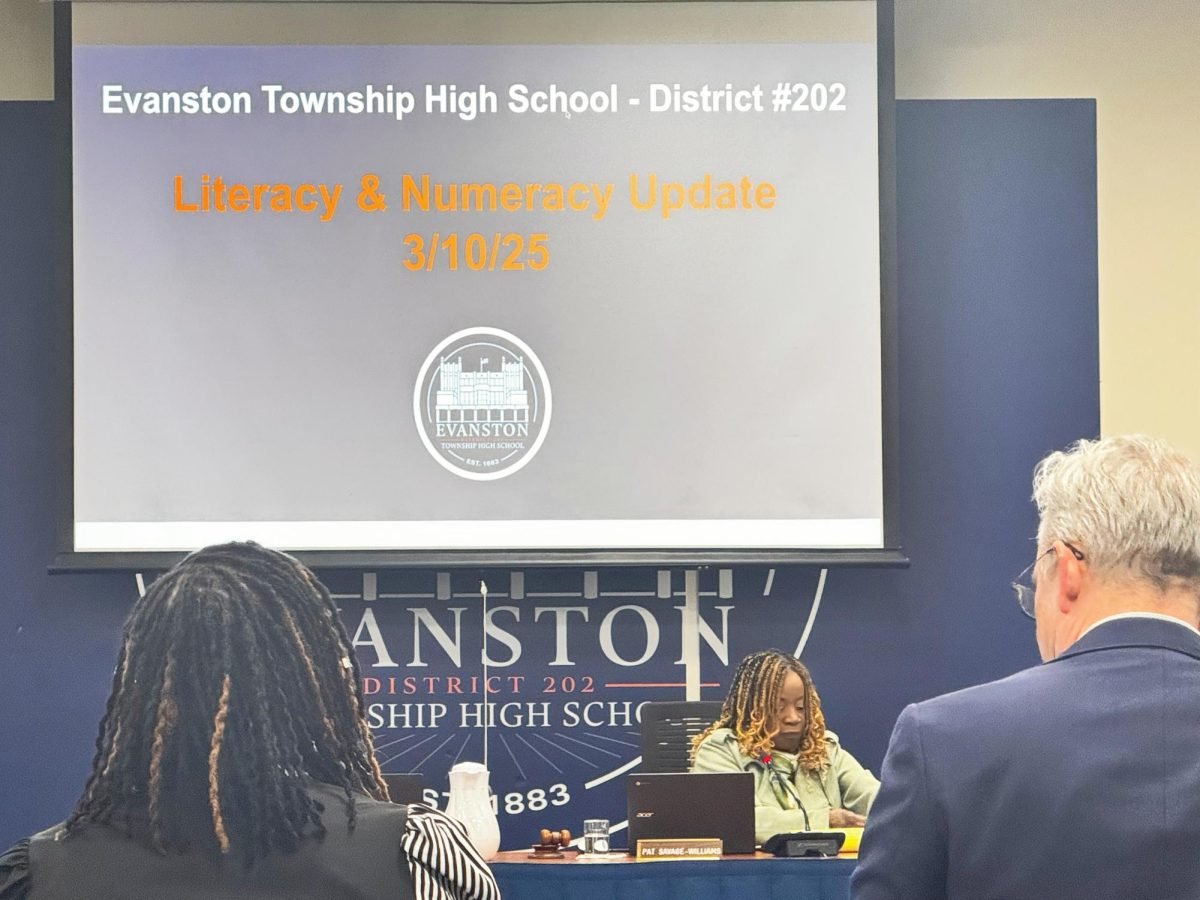The 2024 presidential election has been charged with rhetoric around the criminal justice system, especially as Kamala Harris’ campaign has attempted to leverage a “prosecutor versus felon” narrative against her opponent.
Yet, the vast majority of incarcerated people — including about half a million awaiting their trial, who are presumed innocent and are legally eligible to vote — will face significant challenges in voting. At least seven jail precincts across the country, including one in Cook County, have implemented in-person voting to mitigate these challenges.
During the 2018 primary, less than 7% of those incarcerated at Cook County Jail cast an absentee ballot. In the 2022 primary, just two years after the jail established a polling precinct, that rate jumped to 25%, higher than the rate in the city of Chicago.
“I think voting helps you stand up for yourself, as opposed to feeling like everything is being done to you,” said nonprofit Chicago Votes fellow Darrion Benson, who was at Cook County Jail during Barack Obama’s first presidential race. “I think that changes the way people feel, like they have advocates in their corner, or they can actually advocate for themselves.”
The U.S. Supreme Court ruled 50 years ago that people who are detained pretrial retain their right to vote, but it didn’t require jails to provide them ways to do so.
Even if they do have access to mail-in ballots, there are still many barriers to voting for incarcerated people.
According to the Prison Policy Initiative, widespread misinformation about eligibility, including among election officials, is one of the biggest barriers to voting in jail. Incarcerated individuals awaiting their trial may also face numerous obstacles, such as registration deadlines, voter ID laws, jail mail delays and limited access to registration forms.
Senate Bill 2090, which required county jails in the state to implement a formal process that ensures the opportunity to vote and created the Cook County Jail polling place, was signed into law by Gov. J.B. Pritzker in 2019, aiming to mitigate these barriers.
To empower individuals in custody to be well-informed voters, the Cook County Sheriff’s Office partnered with organizations like Chicago Votes and Injustice Watch, a nonprofit investigative newspaper that covers the Cook County court system, to offer the jail population nonpartisan resources to learn about the elections, according to Director of Programs Antonio Porter.
This year, Cook County Jail offered two weekends of early voting, Porter said. Once the dates were confirmed a few months ago, the jail announced when voting would take place and what people would need to do to be registered, he said.
“When you can partake, you become more interested, and I think that interest drives an awareness about the people making decisions about your life,” Benson said. “If you actually have the opportunity to vote, you can pick people that will be more just in choosing your fate.”
Many people skip over the judge section on their ballot because they don’t recognize the names, according to Jonah Newman (Medill ’12), a managing editor at Injustice Watch. The organization created a judicial election guide, also posted online, and held workshops in the jail.
The guides Injustice Watch sent to Cook County Jail for the 2020 general election were improperly marked as contraband, and all 1,000 copies were sent back, Newman said. Since then, the news organization has coordinated with the sheriff’s office to deliver them directly to people in the jail, he said.
Newman said they still got a few reports this year that individuals did not receive their guides, despite the jail reporting that they had been distributed throughout the vicinity.
“It’s important to us to be ensuring, maybe especially ensuring, that information gets to folks inside the jail, who have direct experience with the courts and with the judges, and are directly impacted by the decisions they make,” Newman said.
Voters are able to bring the guides with them as they vote, said Conner Kozisek, who helped coordinate the jail’s poll watcher program this year. Kozisek said voting in jail is unique because you can’t bring phones into the jail, and there is limited information available.
Poll watchers for Cook County Jail are usually people who have experience working in carceral spaces, like law student volunteers who are interested in public defense work, Kozisek said.
Illinois also has same-day registration, which has been huge for eligible voters who haven’t voted before, Kozisek said. However, there are often issues with the residents’ address section that poll watchers make note of so they can follow up with the sheriff’s office, the county clerk’s office or the Board of Election Commissioners.
“I think there’s a general understanding that voting can increase civic engagement and connection with one’s community. So by prohibiting people from being able to vote, that creates a disconnect from their community,” Kozisek said. “There’s a belief that maybe increasing access to voting and participating in voting reduces recidivism.”
Email: naomitaxay2027@u.northwestern.edu
X: @NaomiTaxay
Related Stories:
— As Cook County Jail cases balloon, activists advocate for inmates
— Early voting to begin Oct. 21
— Wildcats promote civic engagement and voting ahead of election







